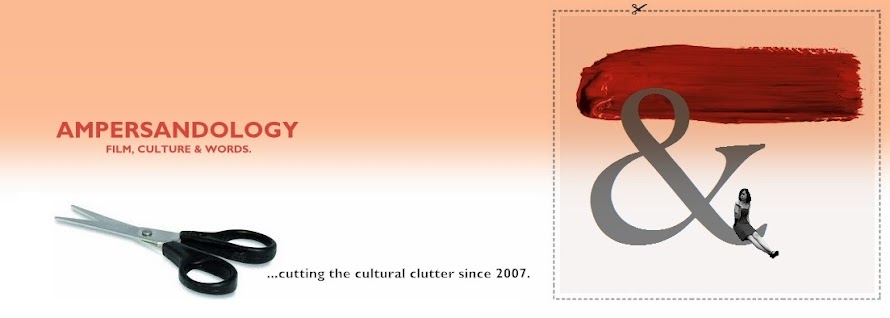
So I’ve seen Public Enemies. And, as usual, I have a mixed reaction.
I’ve done considerable study of the gangster genre, so I went into Public Enemies involuntarily prepared. Seriously, I’m starting to rue the fact that I can trace the cultural lineage of basically any movie, because it’s become near impossible to chase that “aw shucks, the pictures are telling a story!” feeling I used to get as a kid.
The mishmash of film history in my head makes a weirdly nostalgic but fussy result. Knowing the long and varied path of the gangster films that came before it, I can’t help but compare. And while Public Enemies is undoubtedly stunning, well-acted and technically sound, something is just not right.
Now for the preamble: during the late 20s and early 30s, the real heyday of gangster movies, Hollywood was trying to salvage a reputation ravaged by sex scandals and tales of debauchery. It was a seedy place to be, not helped by the relative freedom these actors found under a media widely controlled by the studio. Scandals emerged to seriously dint the glamour of Hollywood, among them Fatty Arbuckle’s trial for the assault and murder of Virginia Rappe, ‘It’ girl Clara Bow’s reputation (the stuff of urban legends), and a string of widely publicized and sordid murders.
It led to an over-vigorous clean-up of Tinseltown, as studios began to build morality clauses into their contracts and the Hays Production Code was written up in 1930. The Code (a hilarious, but worthwhile read) stipulated clearly, among other things, that bad characters came to bad ends, and that crime never went unpunished.

After the Great Depression, the gangster pictures that had been second-feature fodder suddenly became wish-fulfillment for beleaguered audiences eager to see tough Americans who wouldn’t take squat from a corrupt system. These films were anthems to those disenfranchised by the failure of a shortsighted economy. Sure, gangsters were baddies, killing and stealing without remorse, but they didn’t starve, did they?
The dilemma was this: the public loved gangsters. But the Code forbade such characters from being heroes. So how could they be represented as protagonists, when really, they were the antagonists?
Why do I bring all this up? Well, because it’s a trope that still applies today. ‘Gangster movie’ isn’t the catch-all phrase it used to be (compare the ‘fire bad, tree good’ morality of 1931’s The Public Enemy to the nuanced duplicity in 2007’s The Departed) but the same confusion applies: are we supposed to cheer for the guys breaking the law? Or learn how wrong they are?
(The solution after the public soured on gangster stories in the 1940s was more cut and dry: the archetype was turned into a heroic but tough-minded “G-man”—government agents who were basically gangsters in everything but name and pay scale)
Public Enemies, at the end of the day, suffers more than it benefits from this ambiguity. John Dillinger (Johnny Depp, obviously) spends half the movie as a hardened, impressively nuance-free bank robber, apparently in it for the money and the flexible work hours. There’s zero sense of consequence: he’s no more than annoyed at the short spans between bank jobs spent in jail. There are hints of something deeper that drives him forward-- deep-set loyalty, a hero complex towards the working class, and a belief in his own true blue nature— but it’s not on the screen: it’s in the characters’ mouths. If I wasn’t told that Dillinger considered himself someone who never let his friends down, I’m not sure I would have come up with it on my own.
Christian Bale’s Melvin Purvis, on the flip side, is given a strong, if monumentally dull, character from the word go. He’s on firm moral ground: at one point, on the phone with the hilariously accurate J. Edgar Hoover (Billy Crudup), Purvis says plainly that if Hoover won’t scrap this idea of a ‘modern police force’ and send in agents who actually know what they’re doing, he’s resigning. That’s it, full stop. Personal ambition and devotion to the Bureau be damned: Purvis won’t watch good men die for an ideal.
It’s a stark contrast to Dillinger and his gang. They die in blazes of gun fire, in corn fields and on city sidewalks. In a way, they’re all dying for the same staunch ideal, albeit one they probably wouldn’t recognize: they want to live outside of a normal social structure, chomping at the hand that forgot to feed them. Heck, if that means taking a few slugs and living in fear, maybe it’s a fair trade-off.
I mean, don’t get me wrong. The fact that Bale’s character was in the right didn’t make him a more entertaining, or even more interesting character (for one thing, Depp gets the better lines). But if director Michael Mann set out to create a sense of history filled with moral complexity, he fell short. When one side of your argument is traditionally identified as right (Purvis as moral law enforcer) and the other as wrong (Dillinger as unrepentant breaker of laws), you’ve got to have some pretty solid footing as to why we’re cheering for one and not the other. The fact that Johnny Depp is 1/8th dreamier than Christian Bale does not a strong case make.
So I’ll repeat: when did moral complexity become rooting for the bad guys just to skew convention? Don’t get me wrong, I’ll cheer for anyone. All I ask for is a reason.
[TYPOGRAPHY SIDERANT! All this doesn’t assuage my confusion about why the title cards appear in a highly stylized Soviet propaganda font—is there some deeper, oppression metaphor going on, or did it just look vaguely correct? Because I think I understand what they’re going for—they’re just two decades too early. But the effect is jarring.]

No comments:
Post a Comment